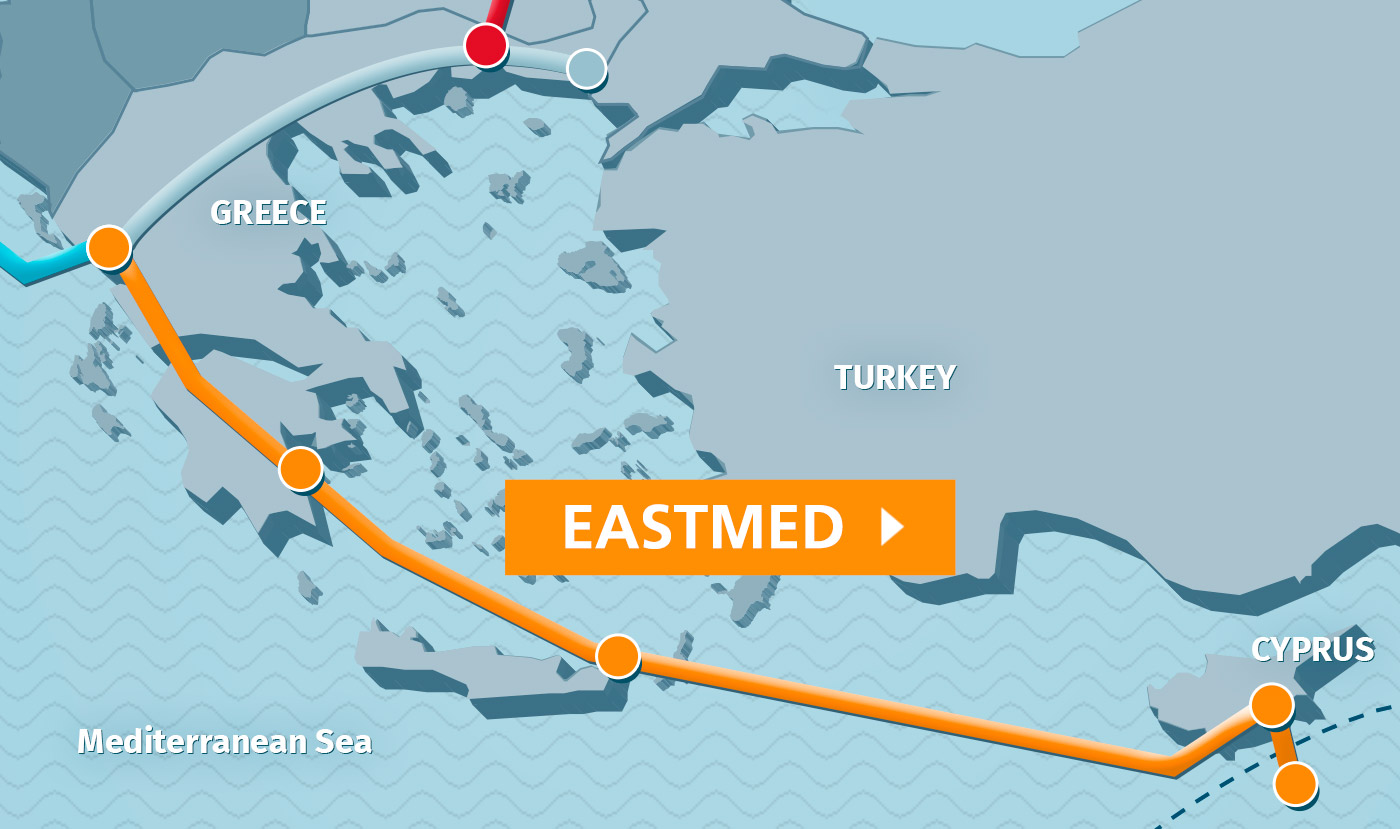Has the EU changed its mind on the Eastmed gas pipeline?

The Eastmed gas pipeline in the eastern Mediterranean also appears among the infrastructure projects of European interest – somewhat surprisingly. Here because. Sergio Giraldo's article
The European Commission has published the new list of infrastructure projects of common interest (PCI) and among these, somewhat surprisingly, the Eastmed gas pipeline still appears. Among the 166 projects that are part of the list, only two refer to gas: a connection with Malta and, indeed, the Eastmed gas pipeline. The revision of the list of projects of common interest had become necessary after the REpowerEU regulation had imposed the orientation of the advantages only to projects oriented towards decarbonisation, therefore excluding the entire gas world.
EVERYTHING ABOUT THE EASTMED PIPELINE
The Eastmed gas pipeline survived the green cleanup thanks to the exception established for islands such as Cyprus, to which Eastmed would provide the only interconnection to the European gas pipeline network. Thanks to a trick, therefore, an important work in terms of diversification of gas sources remains among the infrastructures that the European Union considers priorities. This allows access to important financing and authorization simplifications.
The length of the gas pipeline is 1,900 kilometers (plus another 200 for the branch that will arrive in Italy), with a transport capacity of between 12 and 20 billion cubic meters of gas per year. The route starts from the gas fields of the Levantine basin in the Mediterranean between Cyprus and Israel and will touch the island of Cyprus, then Crete and finally the Greek peninsula. From there the branch towards Italy will start, in effect another gas pipeline, called Poseidon. The infrastructure was already created with the possibility of transporting hydrogen and belongs to a joint venture, IGI Poseidon SA, a company under Greek law based in Athens jointly owned by Edison spa and the Greek Depa International Projects, which falls within the orbit of companies owned by the Greek government. The infrastructure costs around 10 billion euros in total and could come into operation in 2028. The sea area between Israel, Cyprus and Egypt has enormous gas resources, so the project is susceptible to further development.
POSITIVE SIGNALS
There had actually already been some positive signs. Last October 26, the Regulatory Authority for Energy, Networks and the Environment (ARERA) issued a resolution (488/2023) in which it adopted the decision coordinated with the regulators of Cyprus and Greece regarding the allocation of investment costs for the project. The resolution also provided some updates on the investment plans and the benefits expected from the creation of the infrastructure. Overall, this is a net benefit for the European Union of just over 20 billion euros, of which 1.2 for Italy (3.7 billion in benefit and 2.5 in infrastructure costs). The benefit is calculated with reference to the security of supplies and the cost relates to the necessary infrastructure.
WHAT HAPPENED TO POSEIDON?
However, the Poseidon branch, which represents the connection between Greece and Italy, no longer appears in the list of European PCIs: 210 kilometers of pipe which will lose PCI status but which should still be built.
THE OPEC-IEA CLASH
European decarbonisation is therefore proceeding in a zigzag fashion. On this topic, there has been a colorful controversy in recent days between OPEC and the International Energy Authority (IEA). The general secretary of the cartel, Haitham al Ghais, issues a note in which he criticizes an IEA report ( The oil industry in the transition to Net Zero ), in which the authority led by Fatih Birol states that the oil industry is has arrived at the moment of truth and must choose whether to fuel the climate crisis or embrace green.
OPEC secretary responds to IEA accusing it of bias and superficiality: “It is ironic that the IEA, an agency that has repeatedly changed its narratives and forecasts on a regular basis in recent years, now turns to the oil and gas industry gas and say this is a moment of truth.”
Then al Ghais says that the IEA's simplification of climate change responsibilities downplays a complex problem and is defamatory of the oil industry. Finally, the scheme proposed by the IEA to evaluate the progress towards the Net Zero Emissions objective by 2050 is, according to the OPEC secretary, a tool contrary to the bottom-up approach established by the 2015 Paris agreements, limiting made the exercise of national sovereignty in achieving the objectives.
This is a machine translation from Italian language of a post published on Start Magazine at the URL https://www.startmag.it/energia/gasdotto-eastmed-progetti-interesse-europeo/ on Sat, 16 Dec 2023 06:55:25 +0000.
